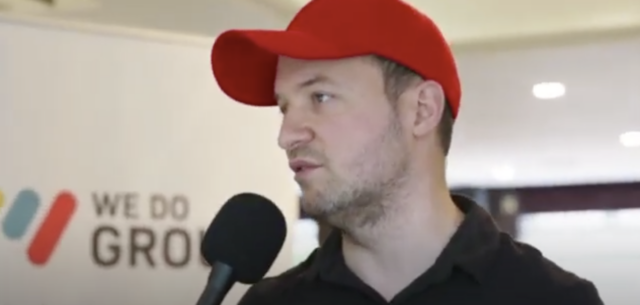Hiring a senior finance leader isn’t about filling a gap or finding someone to close month-end. It’s about securing a strategic partner – someone who shapes decisions, protects margins, and unlocks growth.
The interview is where that difference becomes clear. It’s where you separate the candidates who can truly drive impact from those who will simply keep the wheels turning. Here’s how to spot the red flags before they turn into the wrong hire.

Commercial Impact, Not Comfortable Activity
One of the clearest warning signs in a senior finance interview is when every answer gets stuck in the weeds of technical detail without ever landing on business impact. Senior leaders aren’t hired to tick off tasks – they’re there to move the needle. If a candidate’s stories revolve around reconciliations, process maps, or systems they’ve used, but never translate into results, you’re interviewing a doer, not a driver.
What you want to hear is a clear connection between action and outcome. Did their work improve margin? Shorten the cash cycle? Strengthen pricing discipline? Deliver a cleaner forecast that gave leadership confidence to act? Those are the kinds of results that show they don’t just handle finance – they shape business performance.
It’s not enough to list activities. At this level, what I did should naturally come with what it changed. If they introduced a new reporting tool, what decisions did it accelerate? If they renegotiated supplier contracts, what impact did that have on profitability? Without this thread, you risk hiring someone who is more comfortable executing tasks than driving strategy.
The bottom line: senior finance hires should bring stories of impact, not just lists of responsibilities. If wins can’t be quantified, or achievements are described purely as tasks, that’s a red flag.
Clarity That Travels Outside Finance
Great finance leaders don’t just understand complexity – they can translate it. At interview, if you find yourself wading through acronyms, technical jargon, or a level of detail that only another accountant would follow, that’s a warning sign. Because if they can’t translate complexity in the interview, how will they land their message with Sales, Operations, or the Board?
Clarity is influence. Senior finance leaders need to be able to take technical insight and frame it in a way that engages non-finance audiences. That might mean explaining how changes in working capital affect growth plans, or turning a complex variance analysis into a simple story about margin pressure and options to respond. The ability to make numbers meaningful is what wins trust and drives decisions.
Strong answers in interview show that a candidate has thought about your business model, understands your priorities, and can flex their communication style to the audience in front of them. They’ll tailor examples, avoid jargon, and demonstrate they can bridge the gap between finance and the rest of the business.
On the flip side, generic or one-size-fits-all responses suggest they’ve done limited research – and worse, that they’ll struggle to make an impact once in the role. If they can’t clearly explain value now, there’s little chance they’ll be able to do it when the stakes are higher.
Ownership You Can Trust
You’ll often learn the most about a candidate not from their biggest wins, but from how they talk about the messy bits. Mature finance leaders don’t shy away from tough calls, missed targets, or projects that didn’t go to plan. Instead, they frame them with context, explain what they learned, and show how they applied those lessons going forwards. The ability to own mistakes and adapt is what separates resilient leaders from those who simply deflect and move on.
Pay attention to the language they use. If everything positive is framed as “I” and everything negative is pinned on “they,” that pattern will be likely to repeat when the pressure is on. A strong candidate doesn’t hide behind excuses or blame-shifting, they demonstrate accountability, self-awareness, and growth.
It’s also worth listening for how they talk about people. Senior finance is a team sport. Leaders who only describe their own contributions, without mentioning how they’ve enabled others, developed talent, or raised standards across a team, may be wearing the leadership title without showing any of the leadership behaviour.
Curiosity That Pushes the Conversation Forward
Interviews should run both ways. High-calibre candidates don’t just wait for your questions – they arrive with their own. They ask thoughtful, probing questions about your market position, unit economics, pricing power, and growth plans. That level of curiosity signals more than preparation – it shows genuine engagement.
Curiosity reveals how they’ll show up as a partner. A candidate who wants to dig deeper is showing you how they’ll behave in the role: challenging assumptions, stress-testing forecasts, and helping leadership see around corners. Those conversations reveal whether they’ll be a passive reporter of the past, or an active driver of the future.
By contrast, candidates who ask no questions – or stick to cosmetic ones about team size, reporting lines, or software – are flashing a red flag. It suggests they’ll accept what they’re given and simply feed it back, rather than pushing to understand the meaning and how it drives business growth.
A senior finance leader who doesn’t show curiosity in an interview is unlikely to show it once they’re in the seat. And without that curiosity, you lose the perspective, challenge, and commercial edge that make finance so much more than a “back-office function.”

A Career Story That Makes Sense
CVs can move. That’s not the issue. What matters is whether the journey reads as progression: scope increasing, problems getting bigger, influence deepening.
The journey should feel coherent. Each move should connect logically to the next, showing how they built a breadth of experience, developed new skills, or took on greater responsibility. Red flags appear when the narrative feels improvised. If there are frequent jumps with no upward trend, or gaps that are glossed over, it’s worth digging deeper. Are they leaving roles before making a tangible impact? Are they moving sideways because they’ve plateaued rather than progressed? Is there a pattern of stepping away when things get difficult?
Strong candidates can connect the dots for you. They’ll explain how each role prepared them for broader responsibility, deeper commercial impact, or greater leadership scope – and they’ll do it in the context of your business. If the story doesn’t add up, or they can’t articulate it, you risk bringing in someone whose trajectory doesn’t match the demands of the position.
Final Thought
The wrong hire will keep the lights on. The right hire will sharpen decisions, accelerate momentum, and strengthen the team around them. In interviews, look for evidence of commercial outcomes, clear communication, ownership under pressure, genuine curiosity about your business, and a career story that stacks up. Those are the signals of someone who can step in and make an impact from day one.
At We Do Group, we don’t just look for safe pairs of hands – we find senior finance leaders who genuinely make a difference to the direction of your business. They’re commercially smart, trusted by stakeholders, and dependable when it matters most.
Struggling to find the right candidate?





